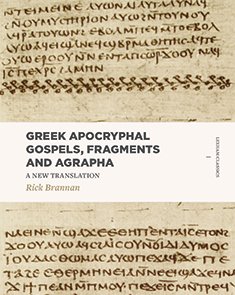The Apocrypha is a closed collection of Jewish writings composed mostly during the “intertestamental” period, from as early as 300 BC to AD 100. They are deemed part of the biblical canon by many Christians, including Roman Catholics, the Eastern...
While many NT scholars may know a whole lot about Matthew–Revelation, many lack the ability to pick up and read Josephus and Clement in the original Greek, or Seneca and Cicero in Latin. This reveals not just a severe lack of language ability, but...
Martin Luther described the Apocrypha as “books which are not considered equal to the Holy Scriptures, while at the same time . . . are profitable and good to read.” Luther translated these books and included them between the Old and New Testaments...
Tobit, Judith, Sirach, Bel and the Dragon—these and all the other books of the Apocrypha aren’t in the Protestant Old Testament, but they are important pieces of literature that help inform our biblical studies. Many Christians may be nervous about...
Earlier this year, Logos published a two-volume set on the Greek Apocryphal Gospels, including material on various papyri and parchment fragments, as well as agrapha. One volume is subtitled Introductions and Translations. It has . . . wait for it ...
I know. I can hear the groaning already. "Greek Apocryphal Gospels? Rick, I thought we were done hearing about that. Really, why keep bringing it up? This stuff isn't the Bible, so why mention it so often?" True, it isn't the Bible. But that doesn't...
As the Greek Apocryphal Gospels, Fragments and Agrapha project is now in the "Under Development" stage of the pre-pub process, and since I've done some work on it, I thought it would be fun to write about some of the material. Most folks aren't...
You may have seen an announcement for a new Pre-Pub called Greek Apocryphal Gospels, Fragments and Agrapha. Yes, that's a mouthful. But what are they? And are these things actually useful to me in my study? I think they are, and I'm pretty excited...





